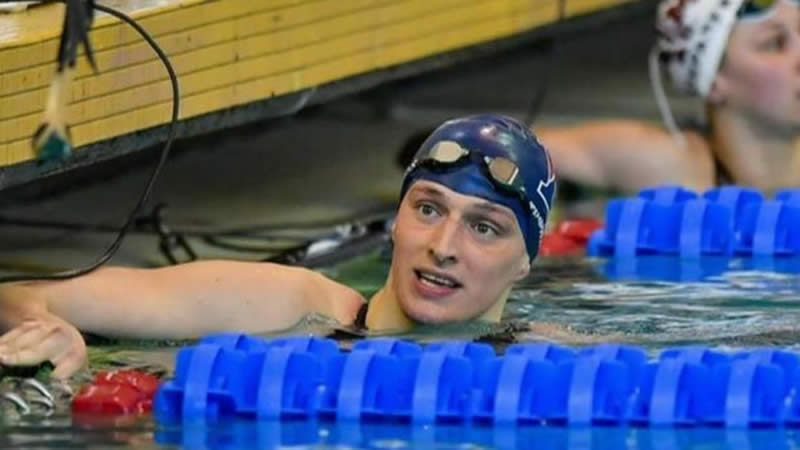Starting Monday, the world swimming governing body effectively banned transgender women from competing in women’s events.
On Sunday, FINA members overwhelmingly approved a new “gender inclusion policy” that allows only swimmers who transitioned before the age of 12 to compete in women’s competitions. The organization also proposed an “open competition category.”
“This is not saying that people are encouraged to transition by the age of 12. It’s what the scientists are saying, that if you transition after the start of puberty, you have an advantage, which is unfair,” James Pearce, who is the spokesperson for FINA president Husain Al-Musallam, told The Associated Press.
“They’re not saying everyone should transition by age 11, that’s ridiculous. You can’t transition by that age in most countries and hopefully, you wouldn’t be encouraged to.
Basically, what they’re saying is that it is not feasible for people who have transitioned to compete without having an advantage.”
There are currently no transgender women participating at the elite level of swimming, according to Pearce.
The World Professional Association for Transgender Health has recently dropped the recommended minimum age for beginning gender transition hormone treatment to 14 and some surgeries to 15 or 17.
A new “open competition” category was also proposed in FINA’s new 24-page policy. “A new working group that will spend the next six months looking at the most effective ways to set up this new category,” the organization added.
Pearce told the AP that the open competition would most likely mean more events, but those details still need to be worked out.
“No one quite knows how this is going to work. And we need to include a lot of different people, including transgender athletes, to work out how it would work,” he said. “So there are no details of how that would work. The open category is something that will start being discussed tomorrow.”
After hearing presentations from three specialist groups — an athlete group, a science and medicine group, and a legal and human rights group — that had been working together to form the policy following recommendations given by the International Olympic Committee last November, the members voted 71.5 percent in favor at the organization’s extraordinary general congress.
As per BBC, the IOC urged that the focus be shifted away from individual testosterone levels and that proof be provided to show when a performance advantage existed.
FINA’s “deeply discriminatory, harmful, unscientific” the new policy is “not in line with (the IOC’s) framework on fairness, inclusion, and non-discrimination on the basis of gender identity and sex variations,” Anne Lieberman of Athlete Ally, a nonprofit that advocates for LGBTQ athletes, said in a statement.
“The eligibility criteria for the women’s category as it is laid out in the policy (will) police the bodies of all women, and will not be enforceable without seriously violating the privacy and human rights of any athlete looking to compete in the women’s category,” Lieberman said.
FINA said it recognizes “that some individuals and groups may be uncomfortable with the use of medical and scientific terminology related to sex and sex-linked traits (but) some use of sensitive terminology is needed to be precise about the sex characteristics that justify separate competition categories.”
Lia Thomas, the first transgender woman to win an NCAA swimming championship, the 500-yard freestyle, in March, made history in the United States.
Thomas stated on ABC’s “Good Morning America” last month that she aspires to be an Olympic swimmer. She also refuted claims that she has an unfair biological edge that ruins the integrity of women’s athletics, saying “trans women are not a threat to women’s sports.”
The University of Pennsylvania did not immediately respond to a request for comment from Thomas.
Other sports have looked into their policies regarding transgender athletes.
Cycling’s governing body changed its eligibility regulations for transgender athletes on Thursday, imposing tighter requirements that will force riders to wait longer to complete.
The International Cycling Union (UCI) has extended the low testosterone transition time to two years and cut the maximum testosterone level that can be used.
The previous transition time was 12 months, but the UCI stated that “the awaited adaptations in muscle mass and muscle strength/power” among athletes who have transitioned from male to female take at least two years, according to recent scientific studies.


